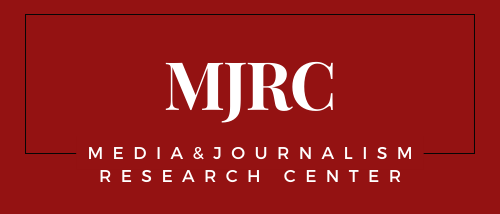Media Influence Matrix Russia: Government, Politics and Regulation
Media Influence Matrix 2018-2024
All media in Russia, no matter whether TV, radio, print or internet, are regulated by the same regulator, the Federal Service for Supervision of Communications, Information Technology and Mass Media (Федеральная служба по надзору в сфере связи, информационных технологий и массовых коммуникаций) or Roskomnadzor (Роскомнадзор).
The main national law regulating media activities is The Russian Federation Law No. 2124-1 “On Mass Media”, dated December 27, 1991. Until the 2010s, this law could be described as democratic and consistent with liberal ideas about the legal regulation of free media. However, gradually, Russian authorities began to amend this law to limit media activities. One of the first such amendments was a ban on the dissemination of information “harmful to the health and development of minors,” which included “denying family values, promoting or demonstrating non-traditional sexual relations, and justifying illegal behavior [such as participation in protests].” Today, the list of prohibited information considered “abuses of media freedom” formally includes: information aimed at committing criminal acts, justification of terrorism and extremism, and coverage of the activities of extremist, terrorist, and “undesirable” individuals and organizations. At first glance, the list does not raise any serious questions. However, a more detailed analysis shows that these are all tools of censorship.
Firstly, information aimed at committing criminal acts includes not only details about the manufacture of weapons or the production of drugs, but also, for instance, information about planning and participating in “unsanctioned” protests [which the Russian authorities prefer not to sanction] or “false information” [which is deemed false solely because it contradicts the official discourse].
Secondly, the justification of terrorism and extremism includes not only overt support for far-right movements that incite ethnic hatred but also support for individuals and organizations officially recognized as terrorist and extremist in Russia. Often, the basis for such recognition is “activities aimed at undermining the constitutional order of Russia,” which, according to the current government’s understanding, encompasses opposition activities. For example, Alexei Navalny’s Anti-Corruption Foundation, the largest and most influential opposition structure in Russia, was designated as an extremist organization. Similarly, the Supreme Court of Russia labeled the “International LGBT Movement” as extremist for “inciting social and religious hatred.” An absurd consequence of this decision is the “rainbow ban” in Russia – public display of a rainbow is now considered an offense. Today, any form of LGBT+ activism – whether it be fundraising, organizing events, or making positive public statements about LGBT+ issues – can serve as grounds for criminal prosecution. Law enforcement agencies have already begun pursuing cases on this basis, and the first criminal charges have been filed. The reasons for inclusion on the list of terrorists and extremists can be anything – from a play that has won one of Russia’s most prestigious theatrical awards, to street graffiti, or anti-war activism. Currently, the official list of “terrorists and extremists” includes more than 500 organizations and 14,000 individuals, and any public support or mention of these entities, without explicitly labeling them as terrorists and extremists, is prohibited.
Thirdly, the concept of undesirable organizations warrants special attention. More precisely, it refers to “a non-governmental organization in respect of which a decision was made to designate it as undesirable on the territory of the Russian Federation.” The Federal Law No. 272-FZ, dated December 28, 2012, empowers the Russian Prosecutor’s Office to extrajudicially ban the activities of organizations that “pose a threat to constitutional foundations of the Russian Federation, the defense capability or security of the state.”
Besides being intended to suppress unwanted non-governmental organizations – including media outlets – the law also prohibits the dissemination of materials produced by such organizations. Currently, among those designated as undesirable are major independent Russian and international media outlets such as Bellingcat, Meduza, Novaya Gazeta, TV Rain, and others. Additionally, participation in the activities of undesirable organizations and providing them with financial support are subject to criminal prosecution.
Thus, what might appear as positive, from a formal and superficial perspective – such as bans and restrictions on the dissemination of terrorist and extremist views, illegal information contributing to crime, and other related measures – are today being used in Russia to suppress alternative sources of information, serving as tools of censorship.
Read the 2024 Media Regulation, Government and Policy in Russia full report.
Read the 2018 Government, Politics & Regulation in Russia full report.
Invest in independent media research and join a community of practice.
Your contribution supports MJRC’s investigations and global analysis. As a supporter, you can receive early access to new findings, invitations to small-group briefings, inclusion in our Supporters Circle updates, and the option to be listed on our Supporters Page.
Contribute to MJRC
